Armenia: Bringing hope to life through education
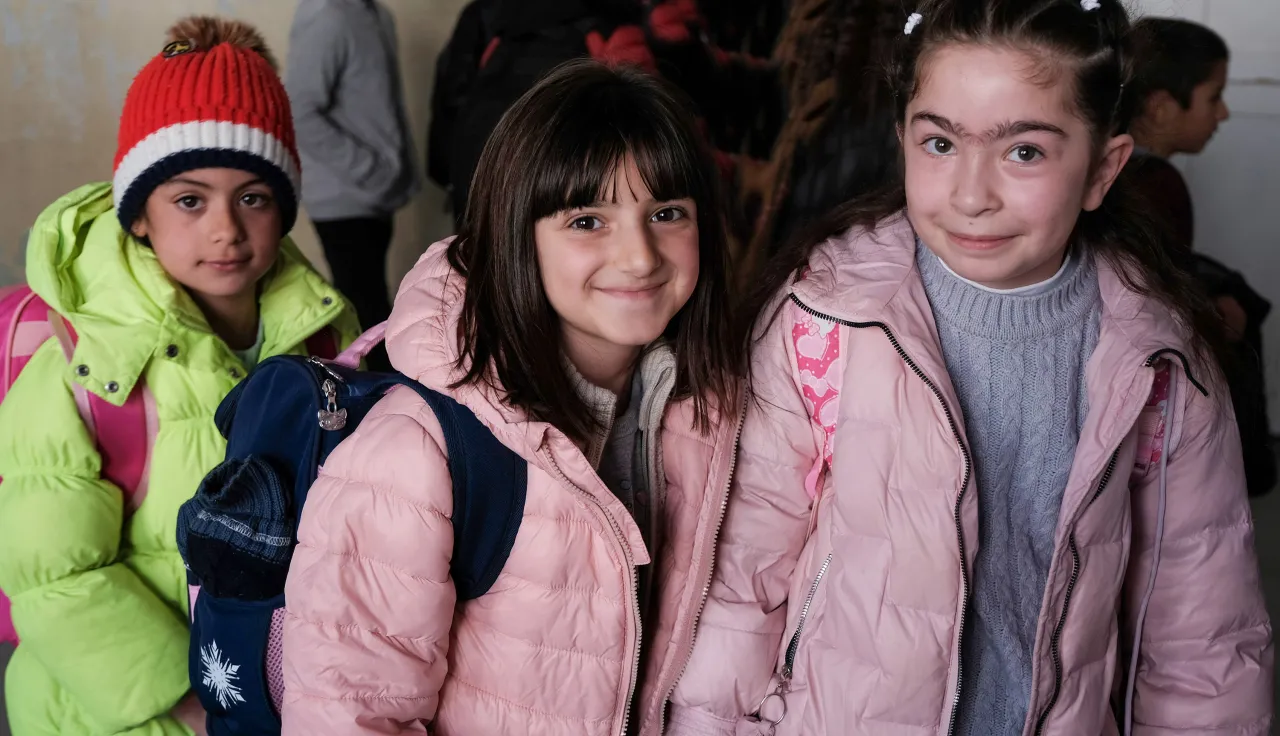
There is an air of collective excitement and relief as the school bell rings in Mets Masrik village of Armenia. While for the children the bell announces another day of meeting friends, learning new things and enjoying games, for the adults, it is the reassuring sound of a normal day.
People living in the conflict affected village located close to the Armenian-Azerbaijani border are slowly rebuilding their disrupted lives.
"Thank God school has resumed, and our children are able to continue pursuing education. Step by step, we are trying to get our lives back on track, both psychologically and physically," says Anna Gasparyan, deputy principal of the only secondary school in Mets Masrik.
She shares that the compound impact of hostilities and COVID-19 pandemic had paralysed the education system in their community. They did not have sufficient classrooms to accommodate the growing number of students or other basic facilities like water supply and toilets. The children also did not have safe places to play or enjoy any leisure activities.
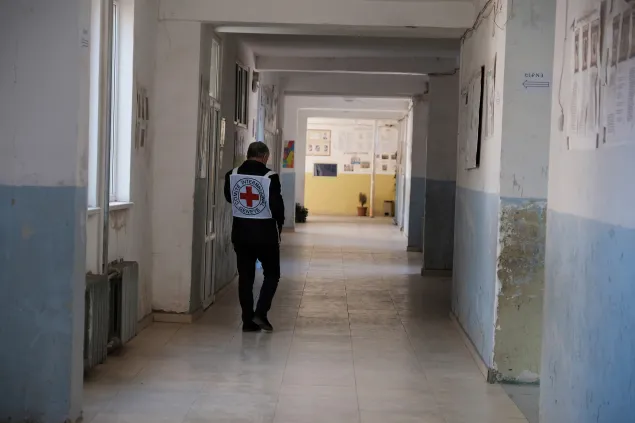
But things are different today. As part of providing humanitarian support to the affected people, the International Committee of the Red Cross (ICRC) helped to renovate a classroom and toilets and provide access to proper sanitary facilities in the school. The ICRC also built a safer room in the kindergarten for the community to take refuge during shelling and supported the Armenian Red Cross Society (ARCS) to set up a Smiley Club for children.
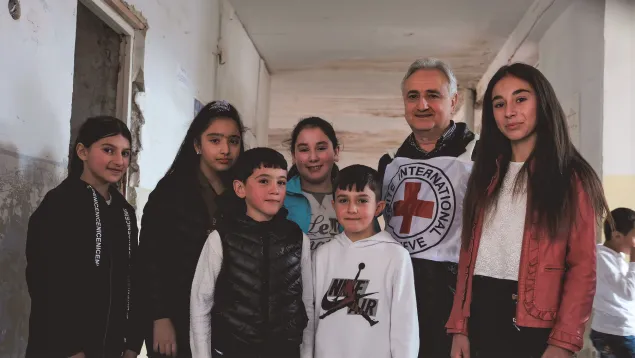
Gasparyan explains that the school, which was built in 1983, had been functioning without ever undergoing extensive renovation. "The facility had multiple problems that hindered creating the right environment for learning and growth. The toilets were disastrous and there was no water available in the school. Can you imagine a modern school for 400 students without a toilet or water? Finally, in 2021 we turned to the ICRC for support. They responded immediately, renovating the toilets and providing access to water inside the school," she says.
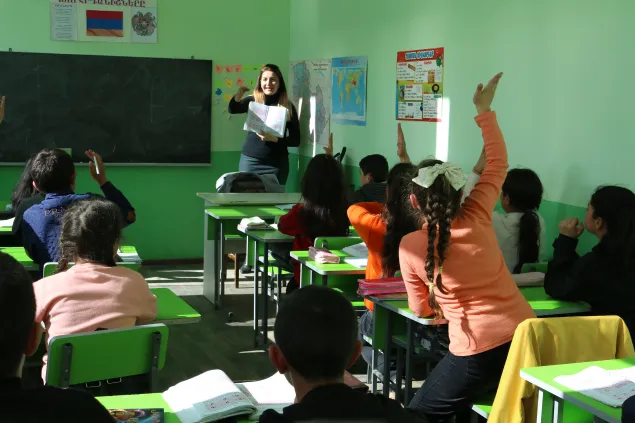
Following the escalation of hostilities many families that fled from their homes found refuge in Mets Masrik. As a result, the school had to accommodate new children. "The library and all available small rooms were turned into classrooms. We were also considering converting the director's room into a classroom," says Gasparyan.
Stepping in, the ICRC helped to renovate a classroom to accommodate the displaced children settled in the community. "Our students now have an extra classroom that is bright and cosy. These efforts give us hope to live, a sense of security and the assurance of being cared for. We associate the ICRC with a feeling of security and peace," adds Gasparyan.
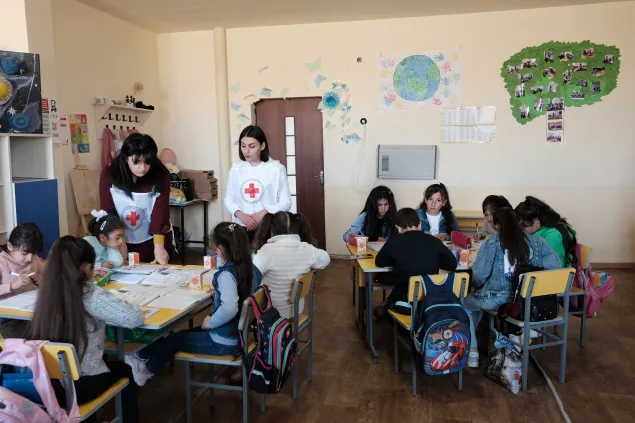
Another bright spot for the community is the Smiley Club which was set up in September 2021 and is run by ARCS volunteers. Children can join the Smiley Club after school to get help with their homework, improve their language and numeracy skills, find psychosocial support or play. Gasparyan, who is also a volunteer with the National Society, shares that the club was started as children in the villages along the border had no options for activities after school. "Earlier, the children had to either go home or find some entertainment outside, but that was not safe. The club provides them a safe space to play, study and pursue hobbies, helping them to develop holistically. It also fosters the smooth integration of displaced children. People always talk about the Smiley Club with enthusiasm and a smile," says Gasparyan.
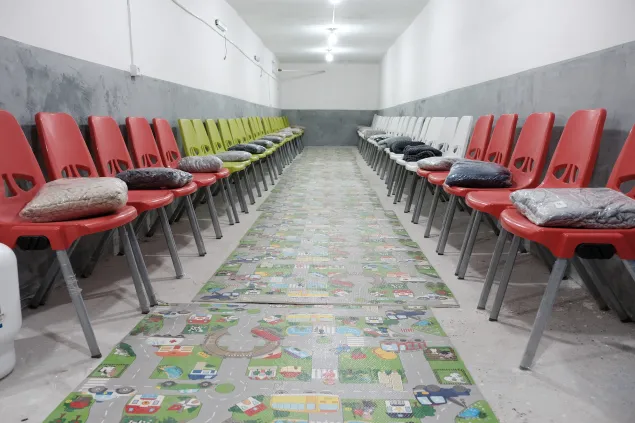
Anik Ghazaryan, director of the kindergarten in Mets Masrik, shares that the ICRC also helped to renovate and furnish a safer room to take shelter in during shelling or shooting. "Built inside the kindergarten, the room can accommodate 200 people. We thought we would never need it, but during the escalation of September 2022, almost 100 people took refuge in the room," says Ghazaryan, adding that parents bring their children to the kindergarten with the assurance that it is the safest place in the village. "We are thankful to the ICRC for ensuring a secure environment for our children and the community," she says.
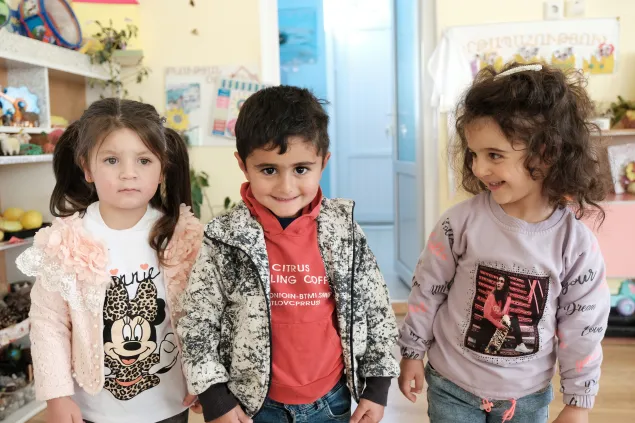
Between June 2021 and December 2022, around 8,000 children of conflict-affected communities of Armenia have benefited from the concerted efforts of various programmes of the ICRC and have now improved physical learning conditions, access to water, better sanitation facilities and access to essential schooling materials.
